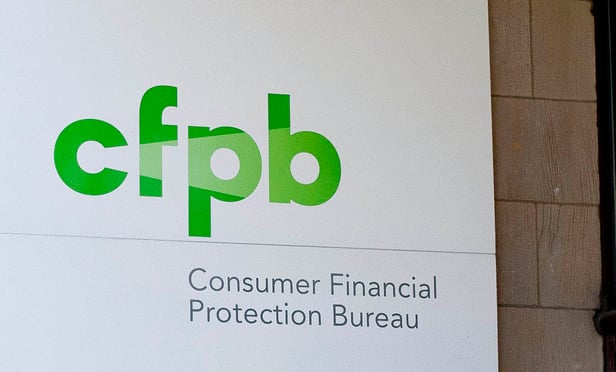 Consumer Financial Protection Bureau building in Washington, D.C. Photo by Diego M. Radzinschi
Consumer Financial Protection Bureau building in Washington, D.C. Photo by Diego M. Radzinschi
Attacking a particularly hot-button issue, credit union trade groups are calling for the CFPB to stop posting unverified complaints on its website.
"NAFCU believes that the Bureau should not publish consumer complaint narratives on its website, or in any other format," Kaley Schafer, the organization's regulatory affairs counsel wrote in a letter to the agency. "There is no shortage of alternative channels through which consumers can comment on or critique the conduct of financial institutions."
Recommended For You
CUNA has called on the agency to better filter complaints, adding that the CFPB has supervisory powers over few credit unions. Complaints leveled against most credit unions should be forwarded to the NCUA, the trade group said.
The problem is exacerbated by the agency's marketing of the complaint system, CUNA said. Consumers may not be clear about whether a complaint should be filed with the CFPB or the NCUA.
The CFPB has been soliciting comments on its major functions and a battle over the future of the complaint database erupted after Acting Director Mick Mulvaney compared it to "Yelp." He said he is considering closing down the public complaint compilation.
However, 35 Democratic senators implored Mulvaney to keep the database open.
"The CFPB was created to stand up for consumers and empower them with the information they need to make informed decisions in the financial marketplace," the senators said, in a letter to Mulvaney. "The CFPB's consumer database is the cornerstone of these efforts."
A consumer advocacy group agreed with the senators.
"The database contains more than one million complaints and has proven useful for consumers, academic researchers, watchdog organizations and businesses, while bringing transparency and accountability to companies that provide financial services and products," the US Public Interest Research Group, said in a report released Monday.
The agency currently posts complaints and, in the past, have used them to issue monthly reports on complaint trends.
The credit union groups say the practice of posting the complaints is unfair.
The CFPB should filter out clearly frivolous complaints, CUNA officials said.
Schafer said that publication of unverified complaints may have a long-lasting impact on a financial institution's reputation. The bureau should give companies the opportunity to supplement consumer complaints with their own perspective and should stop the practice of issuing monthly complaint reports, Schafer added.
However, the Democratic senators said that the complaint system is successful because the complaints are transparent and may be viewed by the public.
"A transparent complaint database creates the right incentives for financial institutions to follow the rules and treat consumers fairly where there's a dispute," they wrote.
The senators included Senate Banking Committee ranking Democrat Sherrod Brown of Ohio and staunch CFPB advocate Sen. Elizabeth Warren (D-Mass.).
© 2025 ALM Global, LLC, All Rights Reserved. Request academic re-use from www.copyright.com. All other uses, submit a request to [email protected]. For more information visit Asset & Logo Licensing.






